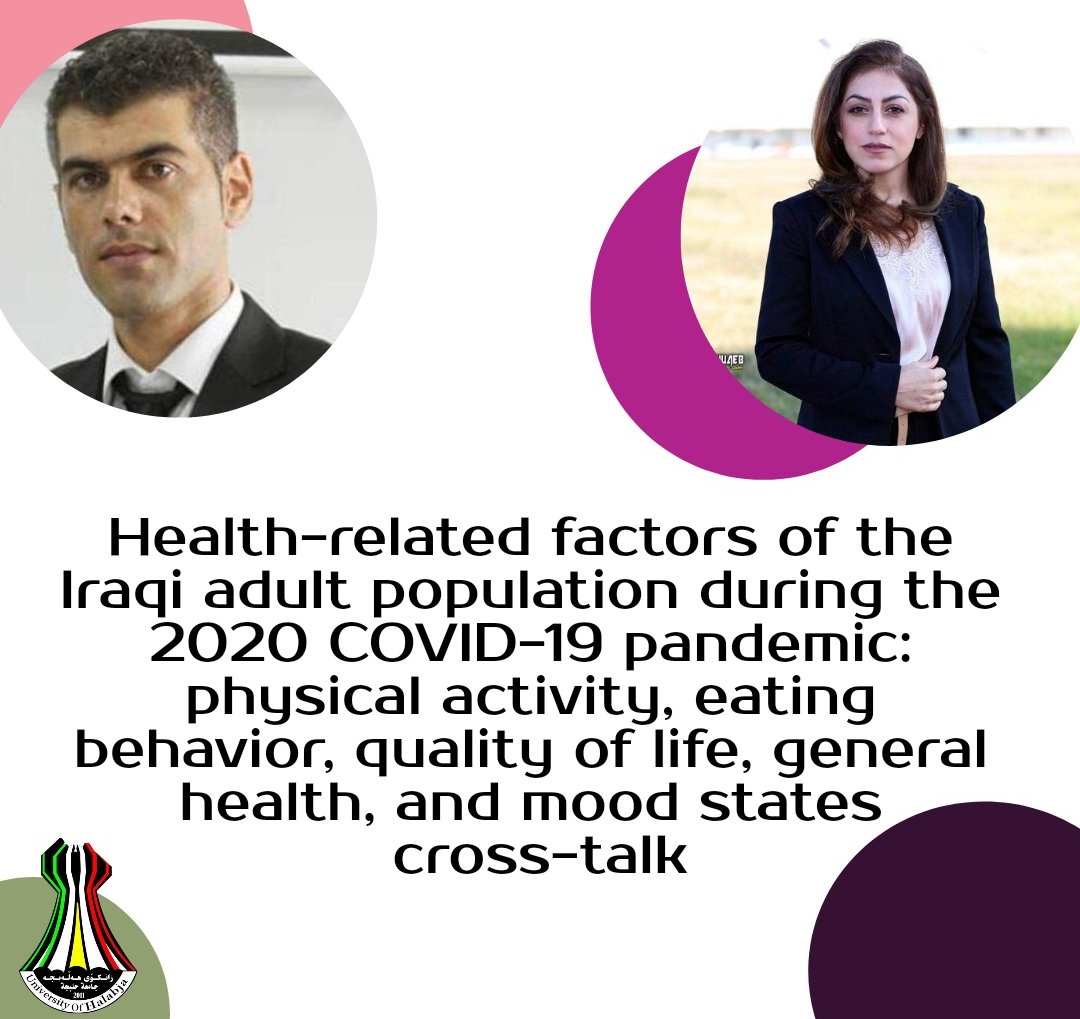

The lockdown and social distancing caused by Coronavirus disease 2019 (COVID-19) may have changed Physical Activity Level (PAL), eating behavior, and health habits due to long-term confinement worldwide.
This study aimed to evaluate the PAL, eating behavior, Quality of Life (QoL), General Health (GH), and mood states during COVID-19 confinement in a large sample of Iraqi adults.
3738 healthy adults (age 18–70 years) residing in Halabjeh, Iraq answered the online questionnaires including the short form of international physical activity, GH, three-factor eating (TFEQ-R18), and a short form of the profile of mood states (POMS-SF) questionnaires. Data analysis was done by Chi-square, and Spearman’s correlation using SPSS statistical software at a significant level of (P < 0.05).
The results showed unfavorable PAL, eating behavior, QoL, GH, and mood states in the total population. Low PAL was observed in 69.96% of the men and 75.99% of the women; only 3.60% of the men and 0.77% of the women had a high PAL. There was a significantly positive relationship between low PAL and the incidence of COVID-19 both in men and women (P = 0.801; r = 0.001; and P = 0.682; r = 0.011), respectively; While a significant negative relationship was observed between the moderate and high PAL and the incidence of COVID-19 in men (P = 0.011; r=-0.682 and P = 0.027, r=-0.589), and women (P = 0.001; r=-0.796 and P = 0.018, r=-0.623). No significant relationships were observed between PAL and eating behavior (men: P = 0.086; r = 0.256 and women: P = 0.365, r=-0.121); While, the results show significant positive relationships between PAL with QoL in men (P = 0.012; r = 0.623) and women (P = = 0.001; r = 0.837). based on the results, significant negative relationships between PAL with GH and mood state scores were observed in both men (P = 0.001; r=-0.837 and P = 0.001, r=-0.786) and women (P = 0.010; r=-0.652 and P = 0.001, r=-0.745), respectively.
The Iraqi adult population showed low PAL, GH, QoL, and mood state during COVID-19 which might be due to the confinement. Also, the significant relationships between low PAL with GH, and mood state recommends physical activity as a valuable health optimizing factor during the COVID-19 pandemic.